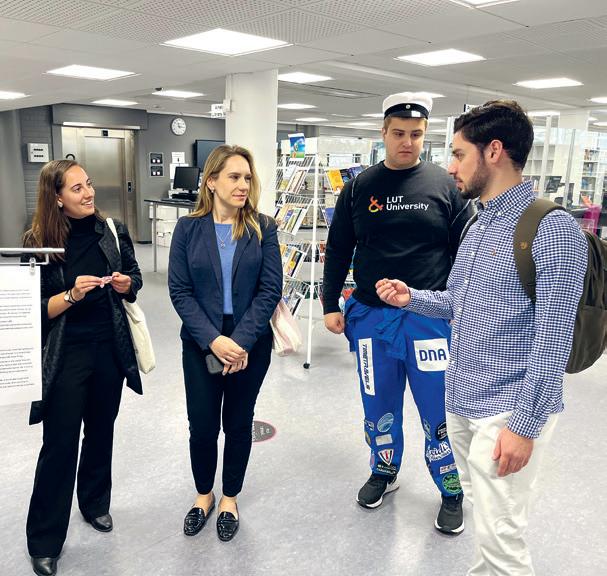
1 minute read
Reimagining Democracy and Expertise as Allies
Atension between popular will and expert knowledge has always colored decision-making in modern democracies. The growing urgency of the planetary ecological crisis and the lessons from the pandemic years highlight the need for new, conciliatory thinking about the relationship between democratic principles and expertise. During my grant period at Cornell University’s Department of Government in the fall 2022, I dove into these questions.
Events of the recent years have provided ample evidence of the ways in which expertise and democracy can come into conflict. Many worry that the authority of scientists and experts is ignored in public debate, while others are concerned about the technocratic overreach of expertise. Both dangers are real. The question then becomes, how do we preserve a space for political debate and disagreement under an urgent need to “base policies on science”? Questions like this cannot be answered by means of empirical knowledge alone. Part of the problem is that expertise plays hardly any role in the conceptual frameworks through which we perceive democracy.
Thus, during my grant period, my research sought to articulate a properly democratic notion of expertise in politics. I was fortunate to tackle these problems in dialogue with amazing scholars of democracy. Cornell, located in the small city of Ithaca in central New York, hosts a vivid, inclusive, and multidisciplinary academic community that is ideal for developing new ideas. I also had the opportunity to present my work-in-progress to audiences in Chicago, Stony Brook in Long Island, and Helena, Montana. Not only professional input, but also the cultural insights gained in such events, were invaluable for taking a fresh look at these problems. www.fulbright.fi/

For a democratic politics addressing global challenges, expert knowledge can be seen as an infrastructure – an “enabling constraint” that facilitates and stimulates multisided debate. The precise form taken by such infrastructures must be adapted to local political cultures. The same shoe does not fit Finland and the U.S. Across different contexts, however, it is helpful to acknowledge that facts do not speak for themselves, and solutions to global challenges are hardly ever neutral. Democratic debate is not an optional nicety, but the very compass that helps us take our bearings in complex global and planetary realities. At the same time, the questions debated by the public are always mediated by expertise.
Of course, being a Fulbrighter is an experience that extends beyond the narrow domain of one’s disciplinary community. From diplomatic events at the Finnish consulate in New York to Fulbright get-togethers in Ithaca and New York, Fulbright opens a door to a broad network of scholars, students, and alumni. As a result, I came home much richer in thoughts and experiences, a cherished resource for years to come.








